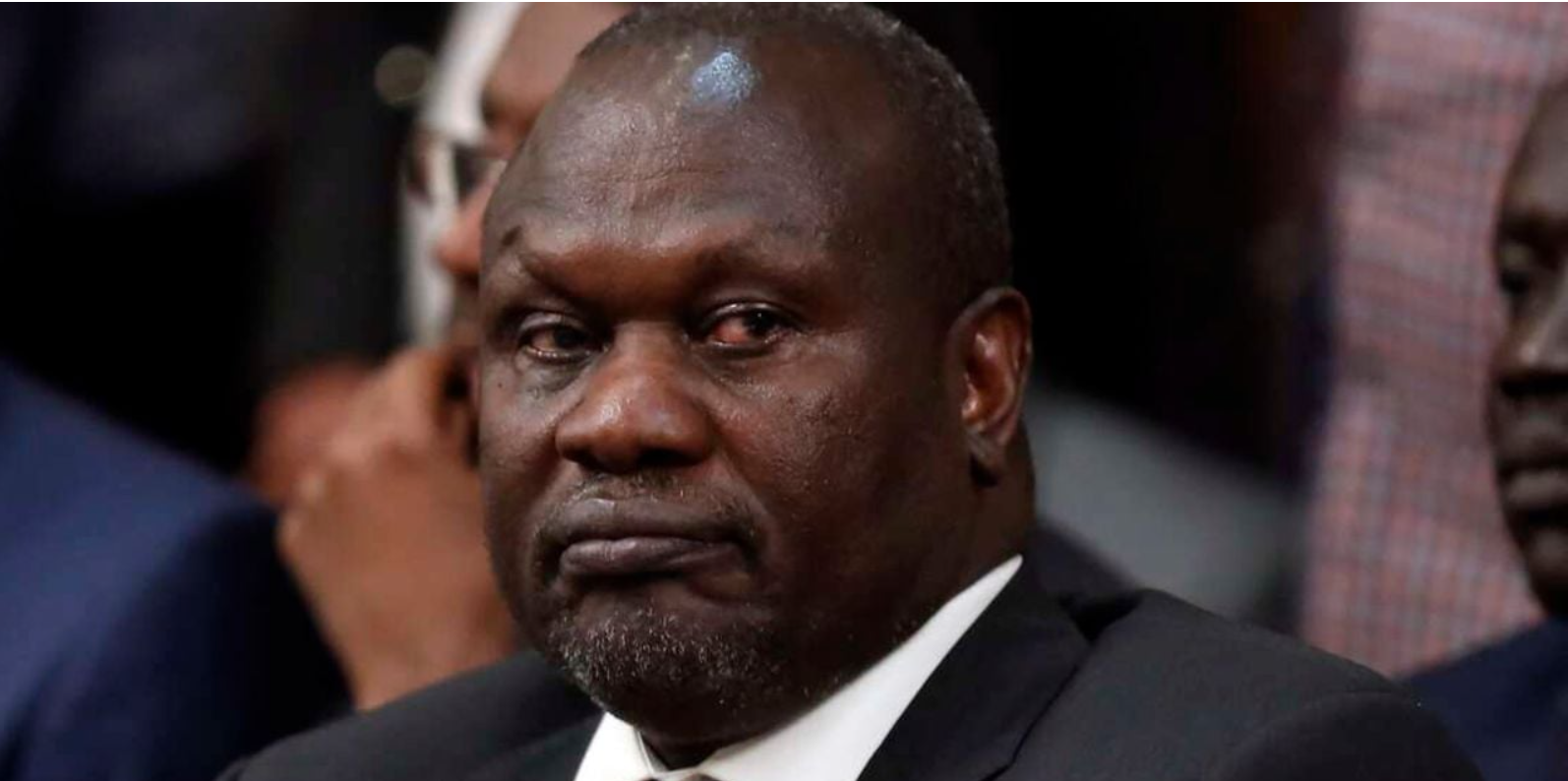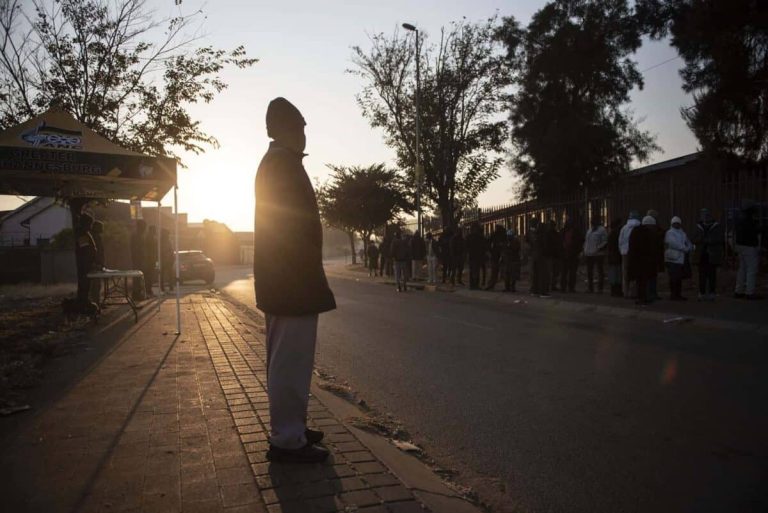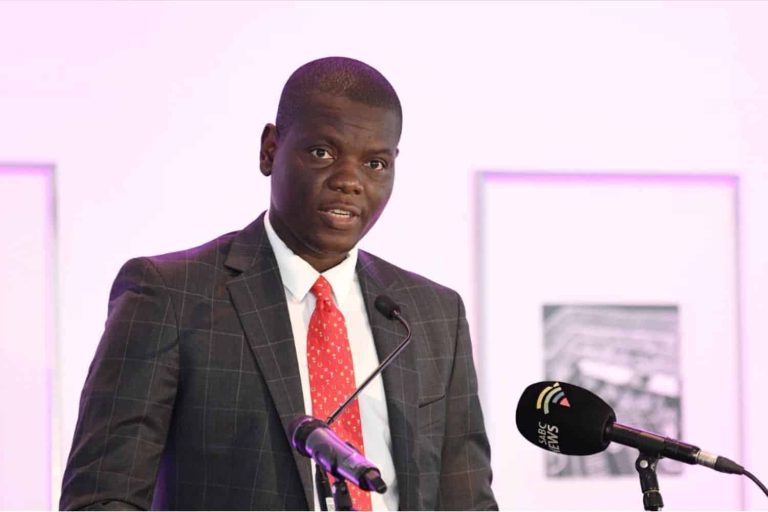
The trial of South Sudan’s suspended First Vice President, Dr Riek Machar, got off to a rocky start on Monday after private media outlets were denied access to the venue.
And the court proceedings caused major traffic disruptions across parts of the capital Juba as roads leading to Freedom Hall — including University of Juba Road, Custom Road, Ministries Road, and Hai Soura Road — were blocked by security forces.
Public frustration escalated after victims’ families, journalists, and civil society members were all denied access to the trial. On social media, Abul Dak, daughter of the late General Majur Dak — killed in the infamous Nasir attack expressed anger after her family was blocked from attending:
“Denying access to the victims’ families during the court hearing makes no sense. Who, then, is justice being sought for? Justice that cannot be witnessed by the living is an empty ritual. Justice belongs not to the dead.
“They have already borne the weight of loss. But to the living who carry the pain, the memory, and the demand for truth. To exclude them is to silence the very voices that give justice its meaning,” reads her post.
The Union of Journalists of South Sudan (UJOSS) reported that its members were barred from entering Freedom Hall, following instructions from the Ministry of Justice and Constitutional Affairs. According to the ministry, only journalists affiliated with the South Sudan Broadcasting Corporation (SSBC) were permitted to cover the proceedings.
“The denial of access to the court for journalists is a direct attack on press freedom, as enshrined in Articles 24 and 32 of the Transitional Constitution of South Sudan (2011, as amended). UJOSS unequivocally condemns this act—especially when the restriction is enforced by the very institution tasked with upholding the constitution,” said UJOSS Chairperson Charles Patrick Oyet in a press release.
Ironically, Freedom Hall itself stands as a symbol of South Sudan’s long struggle for independence and embodies the ideals of liberation and self-determination.
Over the years, it has hosted pivotal political events, including peace talks, consultations, and agreements between South Sudanese leaders and international mediators during the 21-year war between the North and South.
Machar and seven of his political leutenants are facing charges ranging from treason, murder, conspiracy against the state, to crimes against humanity.
The charges stem from an alleged militia attack on a military base in Nasir, Upper Nile State, in March 2025. President Salva Kiir’s government claims the assault—which resulted in the deaths of over 250 soldiers and a general—was ordered by Machar.
Dr Machar, who has been under house arrest since March 26, denies the charges. His suspension last week by President Kiir has been criticised by Machar’s party, SPLM-IO, as a violation of several provisions in the Revitalised Agreement on the Resolution of the Conflict in South Sudan (R-ARCSS), including Article 1.3 on the composition of the Transitional Government of National Unity (TGoNU), Articles 1.5–1.10 on its structure, and Article 1.12 on the allocation and appointment procedures for ministries and deputy positions.
Abul Majur Dak, daughter of the late Gen David Majur Dak—who was killed in the Nasir attack—was also denied entry to the courtroom.
“Denying access to victims’ families during the hearing makes no sense. Who, then, is justice being sought for? Justice that cannot be witnessed by the living is an empty ritual. Justice belongs not to the dead, but to the living who carry the pain,” said Ms Dak.
Edmond Yakani, Executive Director of the Community Empowerment for Progress Organization (CEPO), warned that excluding private media casts doubt on the transparency of the trial and raises concerns about the independence and credibility of the judiciary.
Among those in the dock are former Petroleum Minister Puot Kang Chol, SPLA-IO Deputy Chief of Staff Gen. Gabriel Duop Lam, and five other senior figures from SPLM-IO — a key signatory to the IGAD-brokered 2018 peace agreement.
The session, held at Freedom Hall, was presided over by a Special Court composed of three judges: James Alala, Stephen Simon, and Isaac Four.
The defense team, led by Dr. Geri Raimondo, a former Court of Appeal justice and current law professor at the University of Juba, along with senior advocate Kur Lual, challenged the court’s jurisdiction.
They referenced provisions within the 2018 peace agreement, asserting that the Special Court lacks the mandate to prosecute the accused. They argued that only a designated Hybrid Court, as outlined in the peace deal, could legally hear such matters.
On the other hand, the prosecution — an eight-member team led by private lawyer Ajo Noel Julius maintained that the charges fall squarely within the constitutional and legal framework of South Sudan.
They stated that trying the accused in a Special Court was appropriate, considering the severity of the crimes and their implications for both national security and peace implementation.
After hearing initial arguments, the presiding judge instructed the prosecution to share their case files with the defense team. With the defense requesting more time to review the documents, the court was adjourned to Tuesday.
The court hearing comes days after the death of Captain Luka Gathok Nyuon, a close bodyguard of Machar, who died in military detention. His family and colleagues confirmed his death at Jamus military detention centre in Juba.
Nyuon, originally from Mayom County, had been detained since March, shortly after Machar was placed under house arrest. His arrest followed President Salva Kiir’s decision to suspend Machar and refer him to court in connection to a March militia attack on a military base in Nasir County.
As proceedings are set to resume on Tuesday, the focus will be on whether the Special Court can retain jurisdiction and whether public access to the trial will be restored to ensure credibility, fairness, and transparency.
This case could mark a turning point in South Sudan’s transitional justice process, potentially testing the limits of the 2018 peace deal, the independence of the judiciary, and the nation’s path toward lasting peace.


